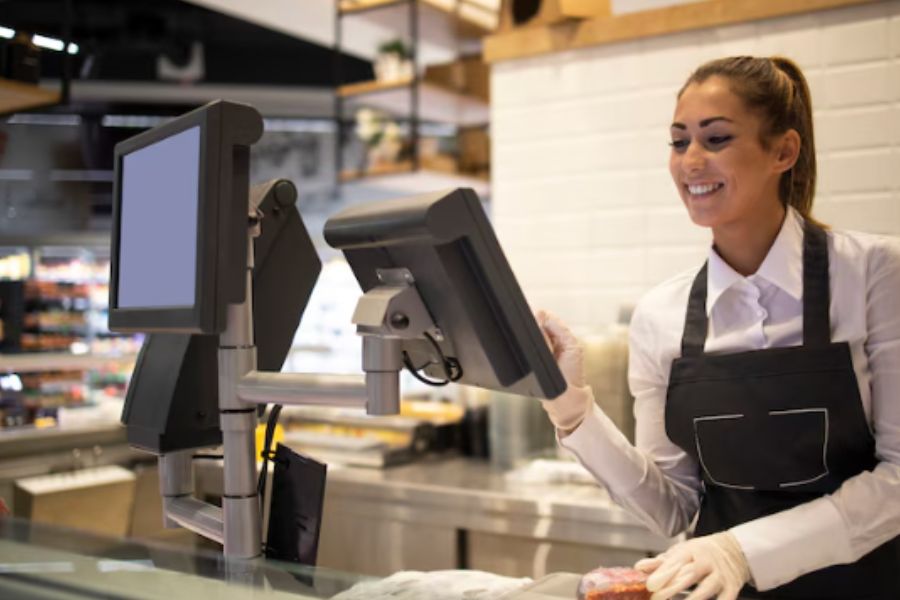What is a cash register?
A register (or cash register) is a mechanical or electronic device for calculating and recording purchases at a point of sale (POS). It is often used by retailers to process the transactions more sufficiently and systematically. A modern register often includes a money drawer which is used to store the cash, an input screen, a barcode scanner, and a receipt printer for record-keeping purposes.
What can a register do?
A basic register can do more than just calculating and recording purchases. It is also equipped with a secure drawer for storing cash, deposits, and bills. Moreover, modern cash registers are now capable of doing basic sales reports and being customized based on specific tax requirements.
What are the types of (modern) cash registers?
Most cash registers in modern days are electronic, and here are the most popular types of registers:
- Electronic cash registers: This is an affordable type of register for retailers who only need basic features such as accepting card payments, processing and recording purchases.
- POS cash register and computerized desktop hardware: Apart from performing basic functions, this type of register also incorporates other advanced POS features such as inventory management, employee management, or sales reports and metrics. These are powerful tools for businesses to operate their stores more efficiently.
- Mobile cash register: Unlike other registers on a large desktop POS machine, the mobile register is more portable and can easily be moved around the store, with the same advanced POS functions. It is also cheaper than the desktop machine. However, a mobile register is less powerful in processing big data and is easier to be taken by thieves.
- Cloud-based cash registers: This is the latest advancement being made to a cash register. A cloud-based system enables retailers to get access to the purchase data anywhere and anytime, provided that there is an Internet connection. This type of register offers more flexibility and security for data management because data is stored in a safer place.


